Learning disability support

Learning disability support in your own home
We offer specialist support at home for adults living with a learning disability.
Around 1% of the British population live with an autistic spectrum condition, and many of those people will have a learning disability. Furthermore, around 1 in 1,000 people in the UK live with Down syndrome, some of whom will also have learning difficulties.
At Helping Hands, we understand how to support someone with a learning disability at home. 20% of our younger clients have a learning disability, many of whom have been receiving live-in support from us for a number of years. Our learning disability care is particularly focused on supporting your loved one in three areas:

Independence and confidence
Your loved one’s carer will help them to enjoy their favourite activities, routines and hobbies, and be a source of positivity in everything they do
Personal development
A carer can support your loved one to develop communication skills and social skills, as well as helping them in the workplace or in education
Health and well-being
Having a carer means your loved one will have someone alongside them to help them exercise, eat healthily, and look after themselves properly
Support for people with learning disabilities
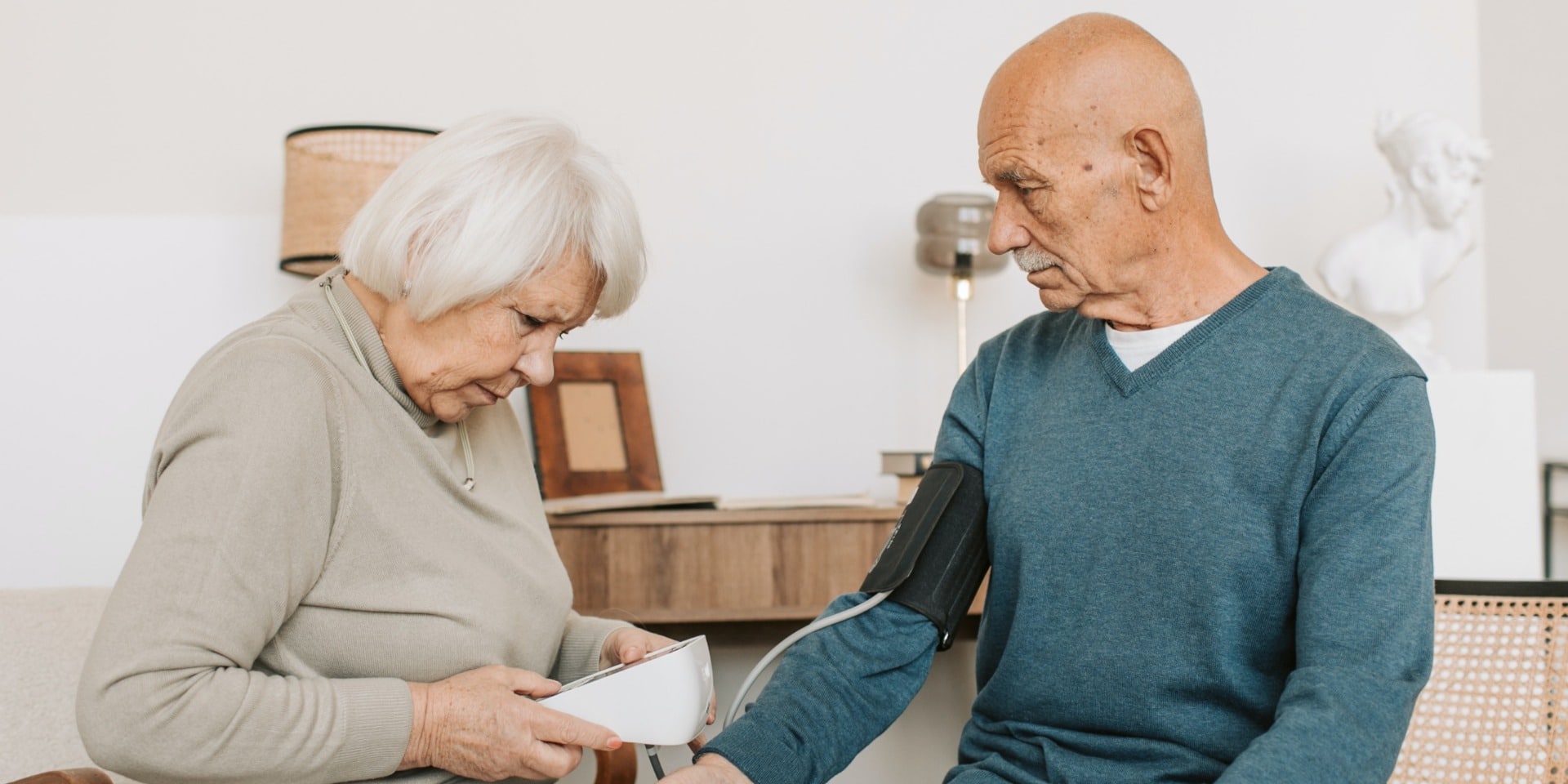
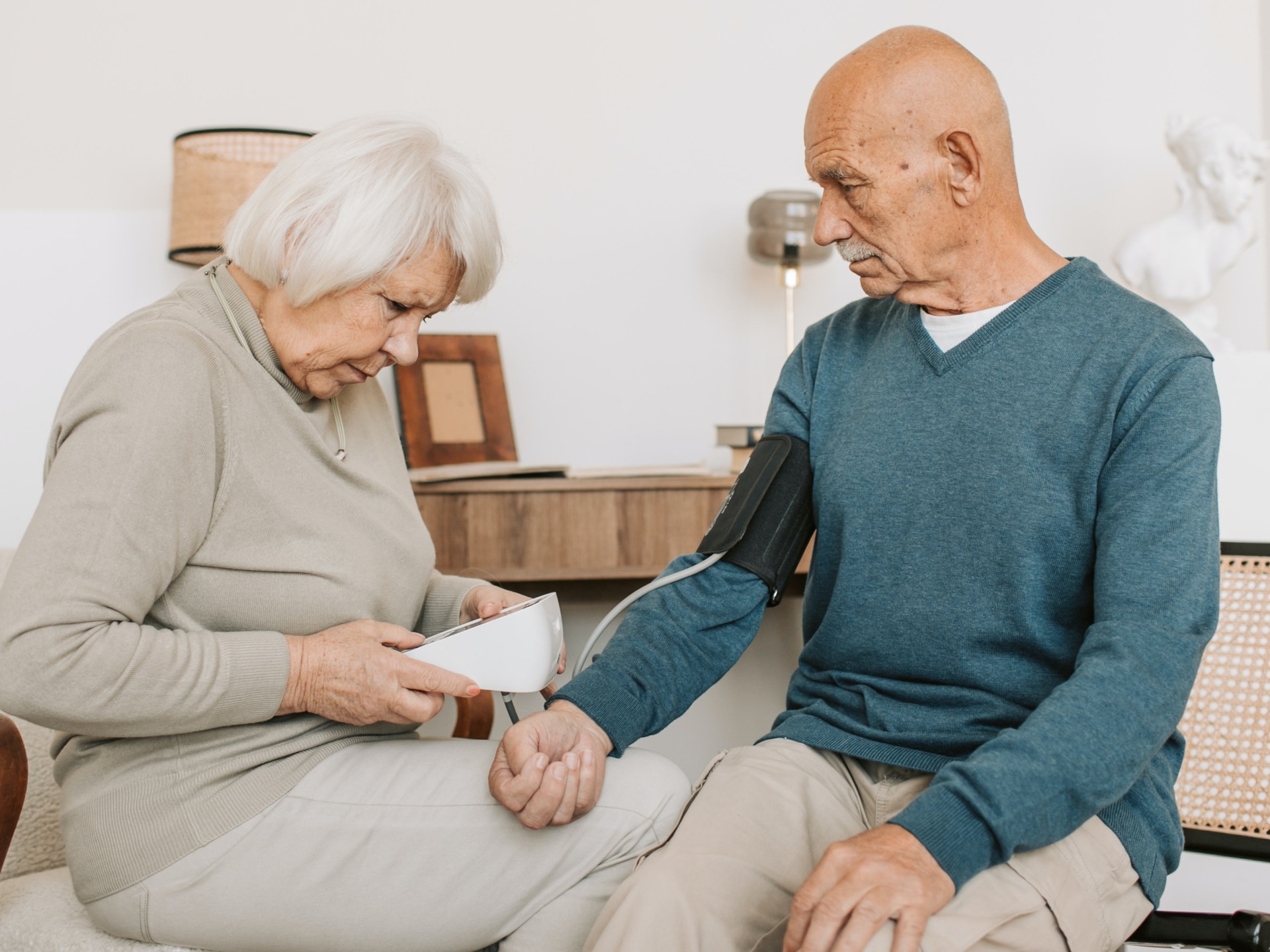
Parents or carers of people with learning disabilities can feel overwhelmed, especially as a child grows into a young adult. Your child may develop at a slower rate than others, and need extra health check-ups – but there is support available if you should need it.
Helping Hands’ private carers are fully trained and experienced when it comes to caring for someone with a learning disability. If your family is unsure of how to best cope during the transition to adult care services, a carer from Helping Hands can support you with your loved ones health. When a young person lives with a learning disability, a live-in carer from Helping Hands can support them with their development, their social and communication skills and any other issues that may arise as a result of their learning disability.
Personal care
A live-in carer will always be there to provide sensitive personal care, both at home and out and about
Proactive housekeeping
Your loved one’s live-in carer can always keep their home clean and fresh, creating a pleasant living space
Overnight care
The added security of overnight support provides the whole family with valuable peace of mind
Friendly companionship
Many of our carers end up being good friends with their customers, even after their support has ended
Hear how our support is making a big difference
Read the stories of two of our customers, Martin and Alison, and find out how their live-in carers have supported them to live life on their own terms and be as independent as possible.
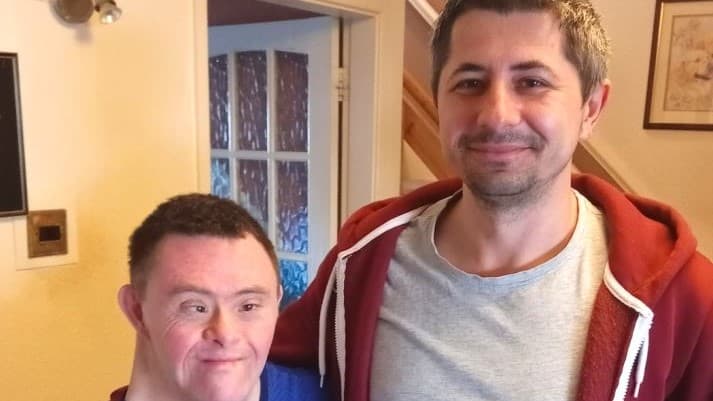

Our approach to learning disability care
A learning disability is always unique to the person, and in every case we concentrate on people’s gifts and strengths.
Because learning disabilities can present themselves in various ways, it can be hard to know what the best support
option is for a loved one, which is where our expert team of carers can help out.

If you are caring for someone with autism, you may need support when communicating with them. Our wonderful carers can help you develop your relationship with a loved one with autism, as well as assisting in many other ways.
Communication
Daily support
Friendly environment
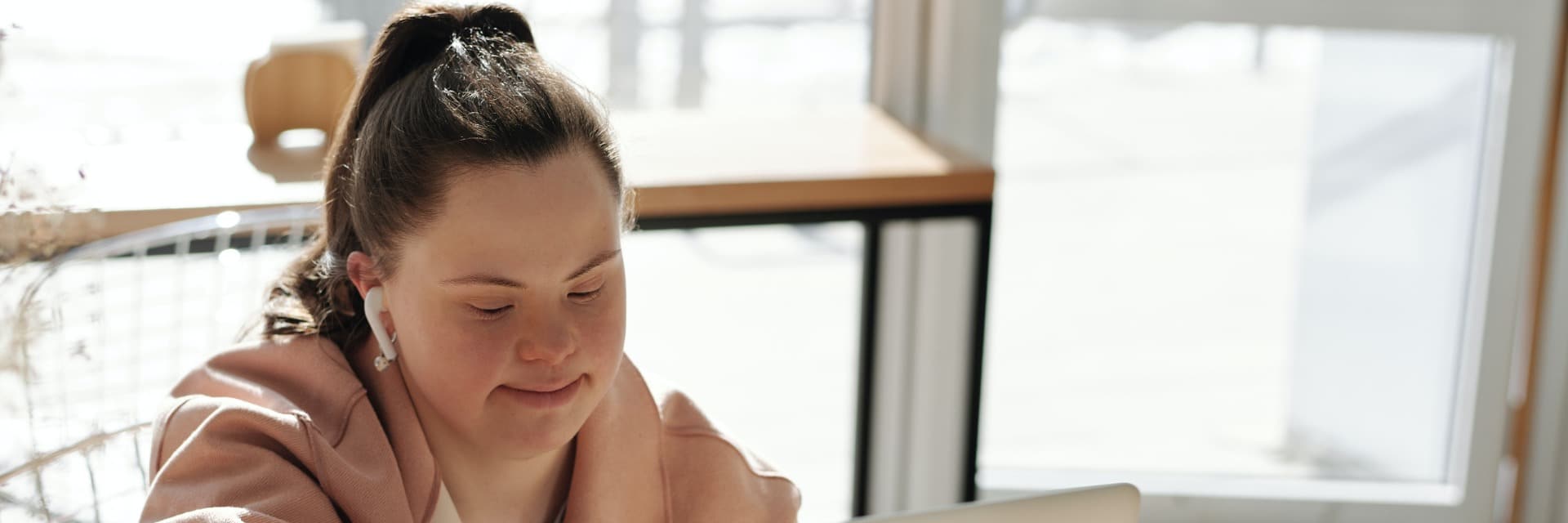
If you live with Down syndrome or care for someone who does, you may find you need extra support. A Helping Hands carer can support you and your family and help with the development of someone who has Down syndrome.
Help with speech
Exercise
Companionship
Respite care – help for carers from Helping Hands
Respite care allows you to take a much-needed break from your caring responsibilities.
As a carer of someone who has a learning disability, your commitments can become overwhelming. We understand that you may need time to look after yourself as well as your loved one. That’s why we can offer you a respite care service.
This means that a Helping Hands carer will be there to support your loved one, round the clock if necessary, so that you can take the time to look after yourself as well. We recognise that this can be difficult, especially if you are a primary carer for your loved one, but we want to help you as well as the loved one you care for.
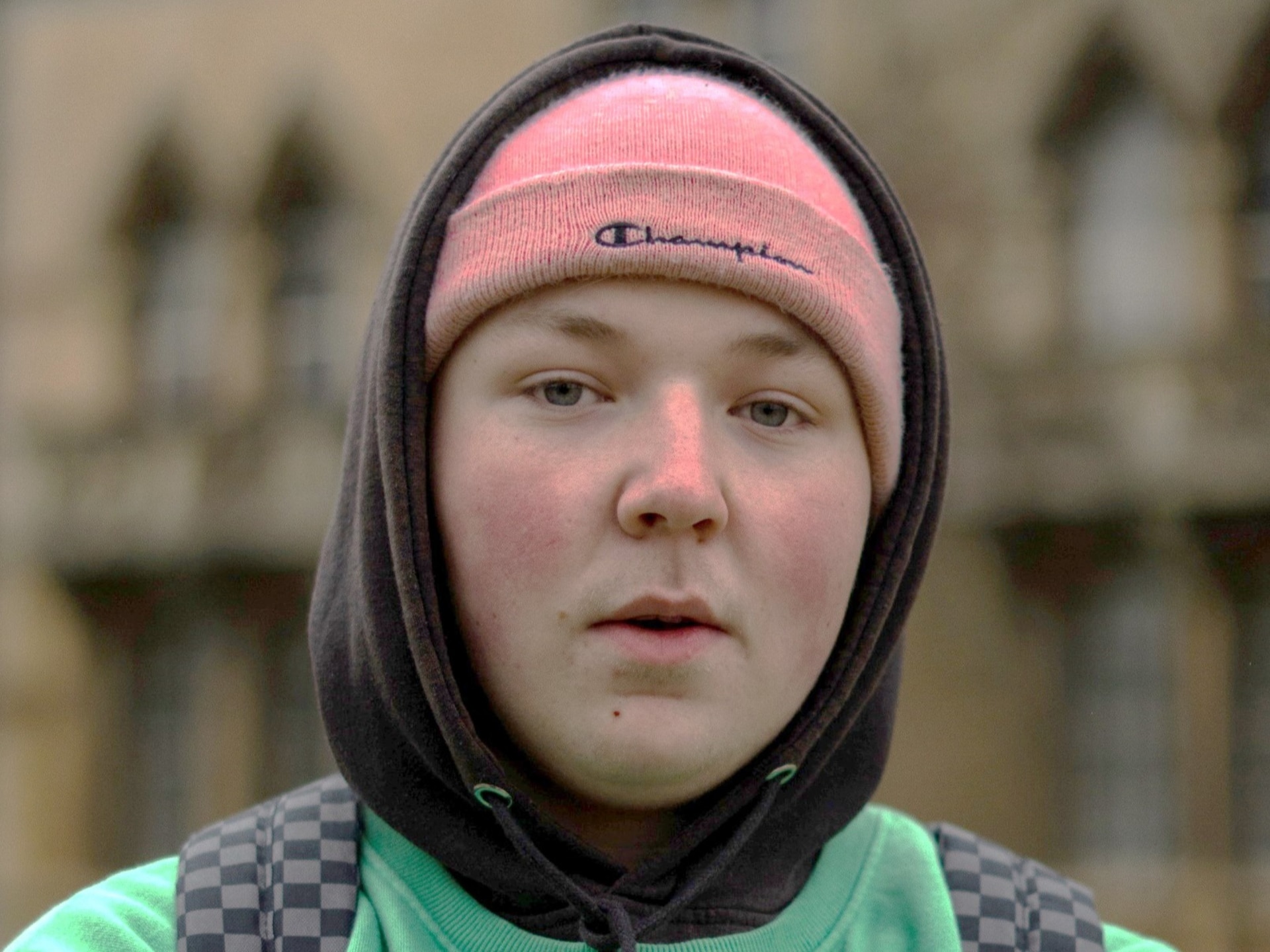
Fully regulated by the CQC / CIW
Here at Helping Hands, our learning disability care is fully managed and regulated by the Care Quality Commission (CQC).
From your very first phone call to our friendly team, every aspect of your home care service is independently monitored and regulated by the CQC and Care Inspectorate Wales (CIW).
Why is being a regulated company important?
What does regulation mean?
Our service is regularly monitored, inspected and regulated by an independent body
Why do we choose to be regulated?
We want every customer to have full peace of mind that their care is approved by a regulating body
How does regulation affect my care?
Our regulation means a guarantee that we’ll provide you with high quality care, no matter what
How to arrange learning disability support
We know that arranging care can be a daunting process, which is why we focus on making it incredibly straightforward to organise support with us. Call our team today to begin your journey.
Speak to our team
Speak to our friendly team to talk through your options and ask them any questions about our care
Free home care assessment
Your local Helping Hands manager will visit you as soon as possible to talk through your needs and wishes
Find your carer
We’ll pair you with a carer who has the skills, experience and personality to support your independence
Page reviewed by Rebecca Bennett, Regional Clinical Lead, on November 30, 2021.